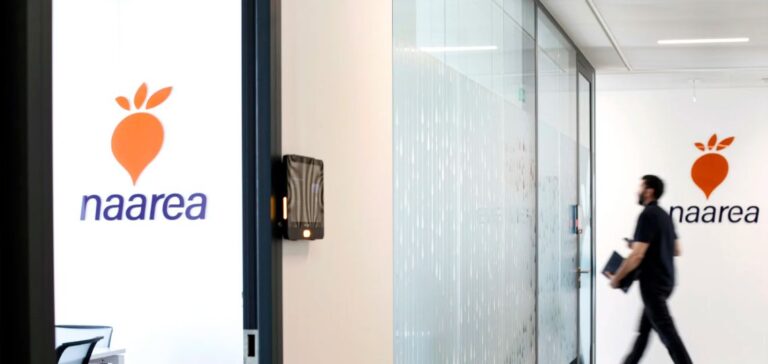French company Naarea has announced the commissioning of its industrial laboratory I-Lab, located in Cormeilles-en-Parisis, north of Paris. This 2,400 m² center will host a team of around twenty engineers and will be used to conduct non-nuclear environment tests for the development of its advanced molten salt microreactor, the XAMR (eXtra Advanced Modular Reactor).
A center dedicated to technological testing
The I-Lab consists of three main areas. The first is dedicated to the production of cooling salts, prototyping, automated testing, and the validation of the digital architecture for Naarea’s future production units. The second area focuses on thermohydraulic experimentation, with several test loops designed to simulate the operation of the XAMR at various scales. Finally, a third section houses three specialized laboratories: a materials and chemistry laboratory for studying corrosion and mechanical resistance, an analysis laboratory for developing evaluation protocols for materials, and a gas laboratory dedicated to filtration, drying, and gas treatment systems necessary for the reactor’s operation.
A key tool for XAMR industrialization
The full-scale test loops at the facility will be used to validate studies and simulations performed by Naarea’s engineers. They will also enable the testing of new processes and materials while contributing to the technical documentation required by the French Authority for Nuclear Safety and Radiation Protection.
Jean-Luc Alexandre, founder and CEO of Naarea, emphasized the significance of this advancement in XAMR development. “This test facility allows us to take a crucial step forward, strengthening our industrial approach and providing us with a tool tailored to our large-scale experimentation needs,” he stated.
Naarea’s objectives and prospects
Founded in 2021, Naarea aims to commercialize an ultra-compact fast neutron modular reactor using recycled fuel and thorium. Its XAMR, with a thermal power of 80 MW (40 MW electric), is designed for multiple industrial applications, including transportation, agriculture, and smart building energy management.
The company highlights the advantage of decentralized deployment, eliminating the need for a grid connection, allowing energy supply to be tailored to local needs and ensuring energy security. The first production units are expected to be available by 2030.





















